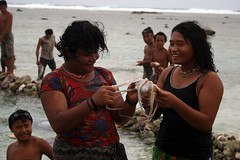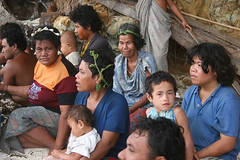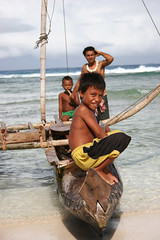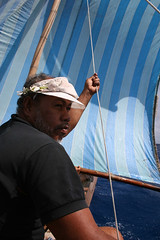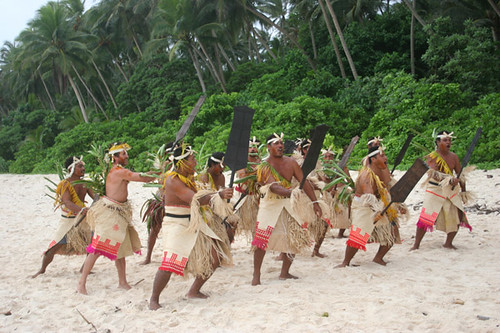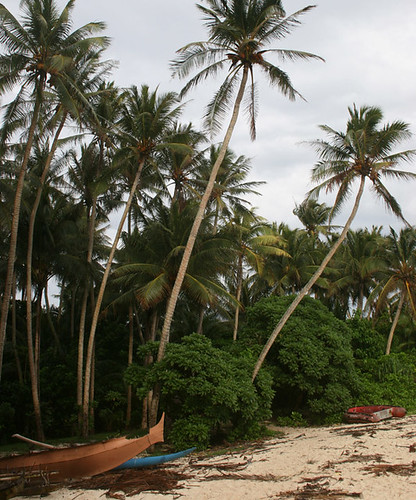
The Anuta
The
Anatan Family Life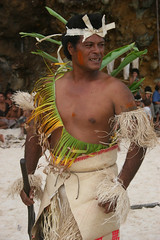
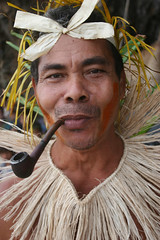
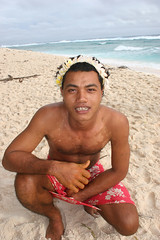
The resident population on Anuta is just under two hundred and fifty. Although Anuta is very isolated there is a steady flow of people and objects to and from the island. On Anuta young men in particular tend to come and go by cargo ships or visting vessels. It is not uncommon for people who vist the island to become adopted into a family and end up staying.
On Anuta, everyone is recognized as being related to everyone else. Family members are related to other family members not only by genetics but also because of certain types of social behavior. The realities of social life in a population as small as Anuta mean that it is impossible to stick to a simple model of family relationships. A relative who is classified on the basis of social rather than genetic ties is just as much a member of his or her group. This is important on Anuta when a vistitor to the island needs to be adopted into a family and made to feel that they belong.
Concern for others is to the backbone of Anutan philosophy. ‘Aropa’ is a concept for giving and sharing, roughly translated as compassion, love and affection. Aropa informs the way Anutans treat one another and it is demonstrated through the giving and sharing of material goods such as food. For example, the land on Anuta is shared among the family units so that each family can cultivate enough food to feed themselves and those around them.
Fishing and Navigation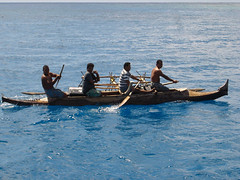
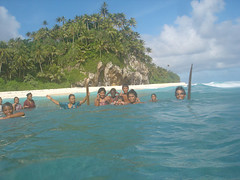
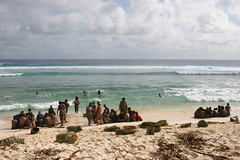
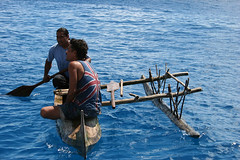
The land provides Anuta with a great deal of its food, but the island’s most productive source of protein is the sea. The islanders catch a variety of small reef fish close to the beach, either by communal fish drives where everyone works together to trap fish in pools in the reef system, or snorkeling or net fishing at low tide. Tuna, wahoo, bonito, sail fish, marlin and other bigger fish are caught in deeper seas, normally on sea-going canoe trips.
Anuta fishermen know the reef system well and have a great understanding of the waves. Today, the Anutans are among some of the last Polynesians to make sea journeys in their traditional canoes using navigation techniques that have been in practice for centruers.
Outsider Influences
Fishermen are the only Anutans who eran money. If they catch shark, they cut off the fins and dry them. The fins are then sold to passing cargo ships or in the capital city,
It is common fo rmen to leav Anuta in the pursuit of wage labor overseas. This time away, often throughout the
The Future
The young people of Anuta do not share all of the chiefs’ opinions, but Anuta is one of the most isolated communities on earth so change happens slowly. At the moment the island is stable an balanced both socially and environmentally. The resources are sufficient to satisfy the population, and the attitude that the Anutans share for one another, aropa, promotes co-operation and sustainability.
Due to its remote geographical location, Anuta’ environment, traditions and culture have been well preserved. The Anutans value their traditional practices such as traveling in their hand-carved outriggers. The island provides an abundance of crops, fish, and a high quality water source from a natural spring; Anuta has successfully supported the dense population for centuries an will hopefully continue to do so. 